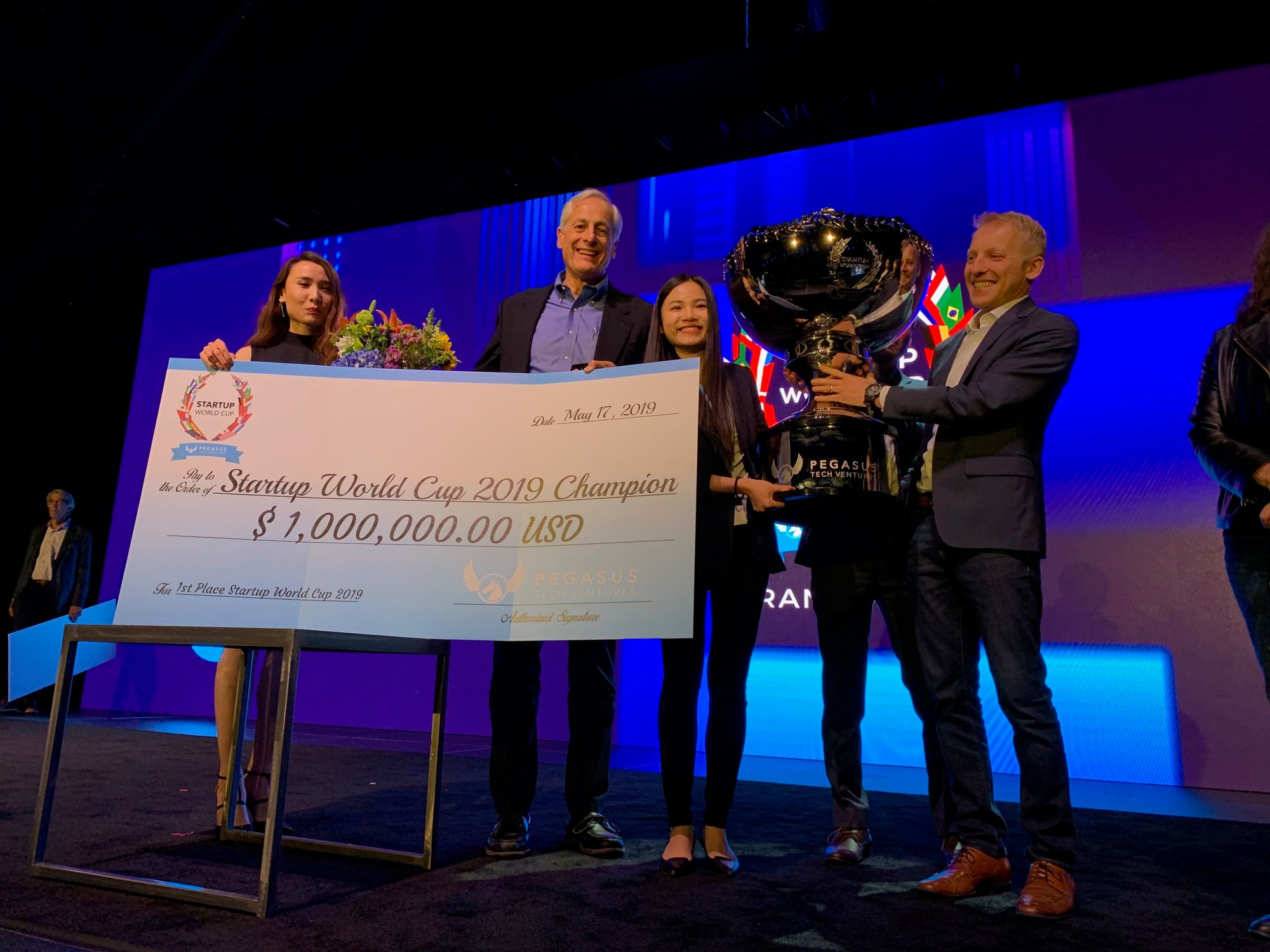Pepperdine Hosts the Startup World Cup — and its $1M Prize

The most cut-throat competition for startups isn't happening in a shark tank — it's being played out in an auditorium at Pepperdine University. And the stakes are high with contestants vying for a $1 million prize.
The Malibu campus hosts the Startup World Cup's regional final on Tuesday with 10 contestants pitching ideas, from an emergency device alerting that someone is drowning to a robotic kitchen assistant named "Flippy." The winner is sent to San Francisco for a global grand finale that pits 40 rivals hailing from L.A.'s backyard to Mongolia to Kenya.
Startups aren't treating this like a game show. The competition is a chance to see and be seen by deep-pocketed business leaders and venture capital investors who pump some $254 billion globally into nascent companies. And about half that amount lands in the U.S. alone.
Even losing can be life changing.
"It was this great momentum-building event that we've been riding ever since," said Chris Ellis, whose Santa Monica-based AudioCardio competed in last year's regional competition. "It really helped build confidence in us. In ourselves."
Ellis, whose sound therapy app listed on Apple's App Store is designed to strengthen hearing, nabbed the 2019 Southern California final. But he lost out in the million-dollar prize to A.I.-based shipping management startup Abivin. (The Hanoi-based company was also a 2019 winner of Vietnam's version of Shark Tank). The 36-old chief executive, who founded the company in 2018 as his grandfather battled hearing loss, said the contest taught him how to pitch his business better: "I was able to go to anyone, tell them what we do, and my goal was to see if I can make their eyes light up about what we could do in the first 30 seconds."
To be sure, a vast majority of startups in the U.S. — and the rest of the world — fizzle out. Research firm CB Insights found that 70 percent of upstart tech companies fail, with consumer hardware startups among the hardest hit. The study, published last year, found that running out of cash and not finding the right venture capital partners were chief among reasons behind their demise.
That's why Len Lanzi, an advisor and former executive director at the Los Angeles Venture Association (LAVA), sees the competition as a boon for fledgling companies. The $1 million prize, backed by Pegasus Tech Ventures and its partners, gives Ellis and other contestants a chance to get experience pitching investors who can help grow their business. That's why Pepperdine's Graziadio Business School's Peate Institute for Entrepreneurship and LAVA is organizing this week's regional finals.
"We build communities around individual silos, industry silos, like global or digital media, clean tech, healthcare, or life science," said Lanzi, who last year helped sift through "about 120 or so applications for ten spots for people to pitch."
Among last year's regional contestants that competed with Ellis' AudioCardio was Los Angeles-based travel search engine Baarb; Encino's Ready, Set, Food!, which protects kids from baby food allergies; and Laguna Beach software maker Eyedaptic that's tackling blindness and macular degeneration.
Lanzi is ready for a fierce battle this year. He describes the current crop of judges as a "blue-ribbon panel." They include Dan Peate, the founder of Los Angeles-based Peate Ventures. Others casting votes are Austin Clements, who is a partner for venture capital firm OPV, Backstage Capital director Greer Engonga, and Frontier Venture Capital managing director Frank Foster.
They could send someone to the world finals with a cool million at stake. And, by comparison, that's a decent sum considering the average deal amount on CNBC's 10-year run on Shark Tank is $286.000.
The contestants for this year's Startup Up World Cup regional championship are:
- Coral Drowning Detection Systems, the Los Angeles developer of the Coral Manta, an A.I. powered device that gives an alert when it detects a person drowning in a residential pool.
- HomeZada, a platform to help homeowners manage information such as finances or home improvements, based out of El Dorado Hills.
- vRotors, a Los Angeles-based platform allowing users to fly real drones around the world using a computer or VR headset from home.
- MyShoperoo, an Orange County-based A.I. powered platform allowing users to have errands run for them while they are at work.
- Miso Robotics, a Pasadena developer of a "robotic kitchen assistant" called Flippy, capable of working grills and fryers, switching tools, and more.
- Gifts for Good, the Los Angeles-based startup that helps companies curate ethical and sustainable corporate gifts.
- Limbix, who assists with mental health treatment using VR.
- OPKIX, a Costa Mesa maker of small cameras that can be attached to hats, sunglasses, necklaces, and other kinds of apparel.
- LexSet, a platform that generates data optimized for retail, augmented reality, warehouses, supply chains, and more.
- Saya Life, a Los Angeles-based platform designed to help property owners conserve and monitor water usage.




 Image Source: JetZero
Image Source: JetZero